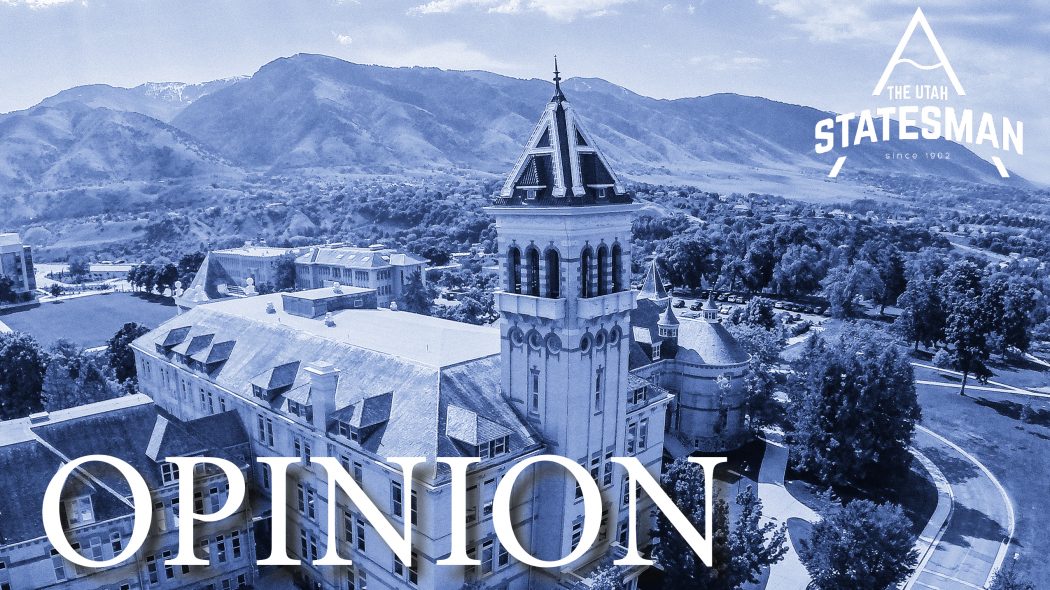COLUMN: Who cares?
Editor’s Note: To submit a response to this column, or submit a letter to the editor on a new topic, email your submission to opinion@usustatesman.com.
Standing outside to campaign during USUSA elections week feels cold and hopeless, and not only because the weather is bad. For the past two years I’ve spent elections week handing out fliers, practically begging the people passing by to vote and have been met with silence, fake phone calls, and the classic “I’m not going to vote, sorry!”
I suppose at least they are being honest with me.
Despite more than 16,000 students on the Logan campus, less than 3,000 votes were cast in the USUSA presidential election. Why don’t more people vote? Why don’t more people care?
This same general apathy also creeps into other, more universal topics.
In my physical science course this semester, we’ve discussed how we might convince people to care about climate change and environmental destruction. To sum up the last several weeks of conversation – it’s not easy.
At the current rate humans are consuming energy and resources, we would need 1.6 planets to sustain life, and if everyone consumed at the same rates as the average American, we would need more like five to six. The scientific consensus is straightforward: the earth is warming because of us, and that warming is disrupting the climate and posing extreme risks for humans.
The reality of man-made climate change is undeniably urgent and dangerous. Most frustrating, however, is the fact that even while civilization in its current state is unsustainable, we have the means to fix it. We just don’t seem to have the motivation.
On a smaller scale, the same might be said for student elections.
Voting in USUSA elections is easy, much easier than voting in national elections. You don’t have to register, wait in poll lines, or mail anything. As you’ve likely heard from dozens of people in the last week, you can vote on your smartphone as you’re walking to class and submit your ballot in less than a minute. There are laptops set up across campus just for voting. Even researching candidates is made easy, with profiles readily accessible online and in the paper, and numerous debates scheduled and broadcasted on social media.
As comedian John Mulaney said jokingly, “It is so much easier not to do things than to do them, that you would do anything is totally remarkable. Percentage wise, it is 100% easier not to do things than to do them.”
As we discussed in my class, one of the difficulties of creating change is convincing yourself and others to push past the temptation to do what seems easy — past the convenience of throwing containers in the trash rather than washing and recycling them, or watching a movie rather than watching student candidates debate their platforms.
Cultural and habitual changes are often more possible than they seem, but that doesn’t matter if people don’t care enough to try.
If climate change and student elections don’t feel important to you, maybe you can consider yourself lucky. Extreme weather events and rising sea levels disproportionately affect people living in poverty. One of the common arguments for the importance of student elections is that your tuition money helps pay for the officers’ scholarships and stipends, but maybe tuition money isn’t very important to you either.
Maybe the candidates’ goals for sexual assault, mental health or diversity aren’t important to you, because maybe you’ve never experienced assault firsthand. Maybe you’ve never gone to the CAPS office and wondered whether you could make it another three weeks while you wait for the next available therapist. Maybe you don’t think about representation on campus because almost everyone on campus already looks like you. Sometimes the question isn’t so much why you should care about the environment or about elections, but why you should care about other people.
Getting people to care about something is difficult, maybe impossible. You can’t force someone to be compassionate, or to develop empathy where there is none. But there can be ways to reach people: through creative storytelling, personal narratives, leadership by example, persistence.
Passion, especially about causes that seem hopeless, can be exhausting. Still, I wonder if that hopelessness could be eased by each person more that decides to care, in a positive and productive cycle of people lifting each other’s burdens through action motivated by education and compassion. In climate science, the idea of equity in climate justice insists that world powers must take the lead in reducing emissions for change to work on a global scale. In student elections, students must vote and vote informed for change to work on a university scale. Then, caring enough to act is not only a question of convenience, but also a question of justice.
This year and next and all the years after that, I hope you care. I hope you vote, and that you find time in the next elections week to engage with the candidates, rather than sticking your headphones in and running away, your hands in your pockets and your head down.
Naomi Ward is a news writer for the Statesman and a junior studying journalism, communication, and English

